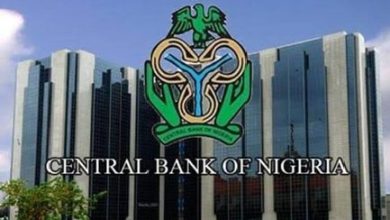Naira Extends Winning Streak, Gains Across Official and Black Markets
The naira ended the week stronger against the dollar, gaining at both official and black markets.
Analysts say rising reserves and improved inflows boosted confidence, easing pressure on importers and businesses.
The Nigerian naira maintained its positive trend against the U.S. dollar on Friday, strengthening in both the official and parallel foreign exchange markets, concluding the trading week on a high note.
Data released by the Central Bank of Nigeria (CBN) showed that the local currency closed at ₦1,531.57 per dollar at the official window, a gain of ₦3.90 compared to Thursday’s ₦1,535.47.
This represents the naira’s most significant daily gain of the week, indicating a resurgence in the foreign exchange market. At the parallel (black) market, the currency also advanced, appreciating by ₦5 to close at ₦1,543 per dollar, stronger than Thursday’s rate of ₦1,548. The back-to-back gains underscore an encouraging trend that has now lasted three consecutive trading sessions.
Analysts attribute the rebound to improved market confidence, partly driven by the increase in Nigeria’s foreign reserves. CBN figures show that the country’s reserves stood at $41.24 billion on August 29, providing stronger liquidity support for the naira.
Market observers say the consistent appreciation signals improved dollar inflows from both oil and non-oil sources, as well as sustained CBN interventions aimed at stabilizing the market.
The positive trend is also helping to ease pressure on importers and businesses that have faced higher costs due to currency volatility in recent months.
Despite the improvement, traders caution that the naira remains vulnerable to external shocks, particularly global oil price fluctuations and dollar demand from manufacturers and students abroad. They stress that longer-term stability will depend on deeper structural reforms, increased export earnings, and investor confidence.
The naira’s performance this week offers some relief for households and businesses grappling with inflation, which hit 34.19% in July 2025, the highest in two decades. A firmer currency is expected to ease import costs gradually; however, experts warn that consistent policy measures are necessary to sustain the recovery.



